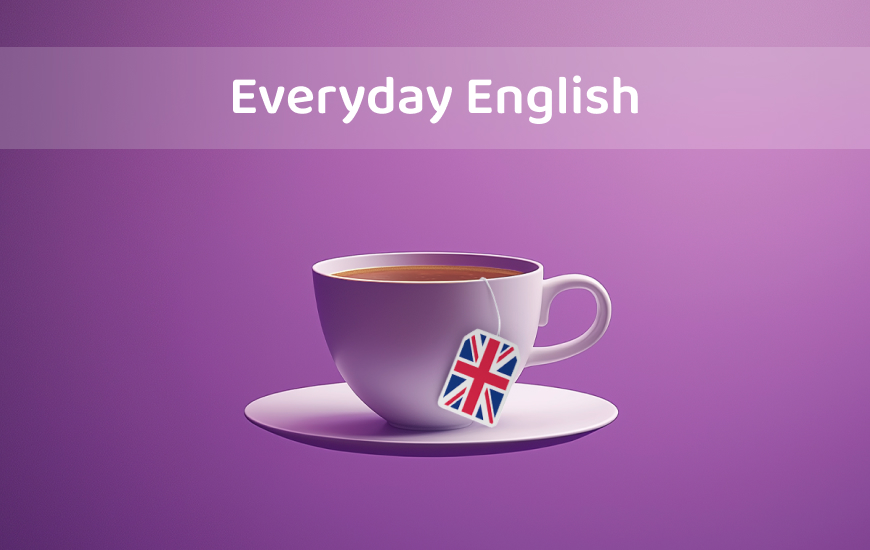Hey, language legend! Marco here, your go-to guy for making English sound smooth, natural, and just the right amount of cool. Ever feel like you understand all the words in a sentence but still miss the meaning? That’s because native speakers love throwing in colloquialisms—those everyday phrases that aren’t always in the textbook but are everywhere in real life. No worries—I’ve got you covered. Today, we’re breaking down the must-know expressions that’ll make your English sound effortless and authentic.
The Secret Ingredient to Speaking Like a Local
Let’s get one thing straight: colloquialisms = everyday expressions that native speakers use without even thinking. They’re the little phrases that make conversations sound natural, effortless, and full of personality.
Think of it like this:
Formal English is the rulebook. It’s what you learn in textbooks—grammatically correct but often too stiff for casual conversations.
Colloquial English is the game. It’s what people actually say in everyday life—relaxed, expressive, and full of shortcuts.
You can study all the grammar rules in the world, but if you don’t know how people really speak, your conversations might still feel a little stiff. (And we don’t want that, do we?)
Why Does It Even Matter?
Adding colloquial expressions to your English will help you:
- Understand native speakers faster—No more “What did they just say?!” moments.
- Sound more natural—No awkward textbook-style sentences.
- Blend in with locals—Whether you’re ordering coffee or making new friends.
- Express yourself better—Because “I’m really tired” just doesn’t hit the same as “I’m totally wiped out!”
Say It Like a Local: Must-Know Everyday Expressions
Native English speakers rarely sound like they just walked out of a textbook. They shorten words, throw in slang, and use casual expressions to make conversations sound effortless. If you want to sound natural, confident, and in the know, you need to add some of these everyday phrases to your vocabulary!
| Expression | Meaning | Example Sentence |
| “No biggie” | No big deal, it’s okay. | “Forgot your keys? No biggie, we’ll figure it out!” |
| “It’s on me” | I’ll pay for this. | “Let’s grab coffee—don’t worry, it’s on me!” |
| “Call it a day” | Stop working for now. | “We’ve done enough. Let’s call it a day!” |
| “Piece of cake” | Super easy. | “That test was a piece of cake!” |
| “Hang in there” | Stay strong, don’t give up. | “The project is tough, but hang in there!” |
| “Hit me up” | Contact me later. | “Need help? Just hit me up!” |
Make These Expressions Stick!
Use them in daily conversations. Seriously, don’t just read them—say them out loud, write them in texts, and casually slip them into your chats. The more you use them, the faster they’ll feel natural!
Here’s how you can practice them:
- Talk to yourself! Pretend you’re calling a friend and say, “Hey, let’s call it a day!”
- Text a friend using one of these expressions—like, “Want to grab dinner? It’s on me!”
- Practice in the Praktika app. Ask me one, twice, or a hundred times! That’s one of the perks of having an AI English tutor.
Colloquialisms in Movies & TV: Learn from the Pros
What if I told you that some of the best English lessons happen when you’re just watching your favorite show? Yep, you can soak up real, natural English just by binge-watching! But here’s the trick: it’s not just about watching—it’s about listening and mimicking. You need to pay attention to how characters talk!
Binge-Worthy Ways to Learn Colloquial English
Instead of just passively watching, try this:
- Pick a show or movie with lots of everyday dialogue (sitcoms, workplace dramas, or reality shows are great).
- Listen for expressions you don’t recognize.
- Write them down and guess the meaning before looking it up.
- Pause and repeat—try saying the phrase exactly how the character says it.
- Act it out! Recreate the scene using the same expressions—yes, really!
Where to Find the Best Colloquialisms in Action
Each show or movie has its own style of casual conversation. Here’s what you can learn from some of the best:
- Love Actually (UK) – Great for understanding British humor and expressions.
- Suits (USA) – Business English meets fast-talking, confident speech.
- Ted Lasso (USA/UK) – A mix of American and British slang in action.
- Queer Eye (USA) – Fun, upbeat modern expressions and positivity-filled phrases.
💡Pro Tip: Use a new phrase from the show in a real conversation (text a friend, write a comment, or practice with me in Praktika!).
Everyday English: Use It or Lose It!
Let’s go through a few scenarios where you can slip these expressions into your conversations.
Casual Chat with a Friend
👤 You: “Hey, I totally overslept this morning!”
👥 Friend: “Oh no, did you miss your meeting?”
👤 You: “No biggie, I rescheduled!”
Expression Used: No biggie (No big deal, it’s okay.)
Shopping at a Café or Store
👤 You: “I’ll take a cappuccino, please!”
👥 Cashier: “That’ll be $4.50.”
👤 You: “It’s on me, let’s grab one for my friend too!”
Expression Used: It’s on me (I’ll pay for this.)
At Work or School
👤 You: “We’ve been working on this project all day…”
👥 Teammate: “Yeah, I think we’re good to go.”
👤 You: “Let’s call it a day!”
Expression Used: Call it a day (Stop working for now.)
Texting a Friend
👤 “Hey, I need help with my resume. Can I send it to you later?”
👥 Friend: “Sure! Hit me up whenever.”
Expression Used: Hit me up (Contact me later.)
Your Daily Mission: Use at Least 3 Expressions Today!
Pick 3 expressions you learned and use them naturally throughout the day. Don’t worry if you mess up! That’s what I’m here for—a supportive AI English tutor and friend who will gently correct you and help you feel more confident using these phrases.
Try:
- Chatting with a friend using a new expression.
- Say one out loud while ordering food or shopping.
- Drop one into a conversation with me in Praktika!
The key is consistency. The more you use these phrases, the faster you’ll sound like a natural! So, are you up for the challenge? Let’s get talking in the Praktika English learning app and make these expressions feel like second nature!

From Marco
Marco is your engaging, energetic AI English tutor who makes learning feel like a great conversation with a good friend. As a former journalist and sports enthusiast, he knows the power of confident communication and is here to help you master real-world English. Whether you’re tackling fast-paced conversations, tricky slang, or pronunciation hurdles, Marco’s got your back. Expect engaging chats, plenty of encouragement, and a few good laughs along the way!
